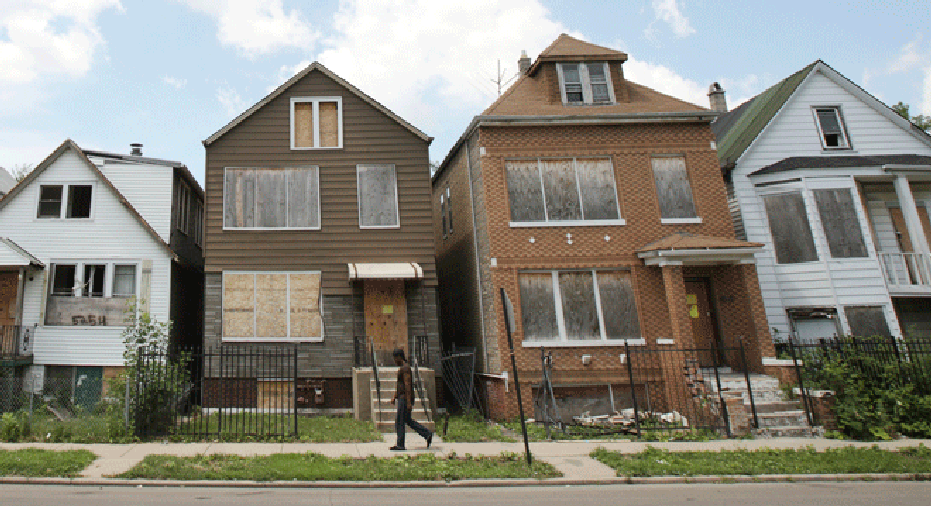Are Zombie Foreclosures Killing the Neighborhood?

The Walking Dead, which airs on cable TV channel AMC, gets killer ratings and focuses on the survival of man among Zombies. Unfortunately, zombie foreclosures aren’t viewed as favorably.
Zombie foreclosures occur when the homeowner moves out after foreclosure begins, but then the foreclosure is cancelled for some reason, the sale doesn’t happen, or the title is never transferred to the new owner. As a result, the title stays in the original homeowner’s name.
The house ultimately becomes vacated and left unattended, which can wreak havoc on a neighborhood; and it could take years for the lender to proceed and complete the foreclosure process if at all.
This leaves the neighbor next door with an eyesore to deal with. Worse yet, it may be a safety issue as some of these properties become havens for drug dealers and squatters.
At the end of the second quarter of 2015, 127,000 U.S. properties were considered zombie foreclosures, and one out of every four foreclosures were considered zombie, according to RealtyTrac, a leading national source for comprehensive housing data.
“Zombie foreclosures will continue to be a lingering problem for the rest of 2015, and in fact will likely become a bigger share of total foreclosures as it appears banks in some markets are willing to push more homeowners that have been delinquent for some time into foreclosure,” said Daren Blomquist Vice President at RealtyTrac.
The highest zombie foreclosure rates among 183 metro areas analyzed by RealtyTrac at the end of the second quarter of 2015 were in Atlantic City, N.J. (one in 130 housing units), Trenton, N.J.(one in 166), Tampa, Fla. (one in 218), Binghamton, N.Y. (one in every 260), and Ocala, Fla. (one in every 262).
“Even though the numbers may get worse in the short term, I think all the attention paid to the issue [zombie foreclosures] is tipping the balances in the direction of improvement,” notes Bromquist.
“Ultimately these properties need to be dealt with, and the fact that we see more banks moving vacant properties through the foreclosure process is an indication that is happening.”
Another method of slowing the increasing rate of foreclosures are enacting laws.
New Jersey is one state that has enacted legislation… and it was sorely needed, as N.J. has the highest rate of foreclosures — and zombie foreclosures — in the nation.
The law in N.J., which was put into effect about a year ago, gives municipal officials the authority to issue citations and impose fines to ensure creditors fulfill their responsibility to maintain unoccupied residential properties. In-state creditors found to be in violation of any ordinance, rule or regulation would be subject to a minimum fine of $1,500 for each day of the violation, with out-of-state creditors $2,500, at minimum.
Bromquist states: “the best policy solution I’ve seen, particularly in markets with a lot of low-value zombies that are in undesirable locations, is the land bank, which is a government entity set up to absorb these types of properties and deal with them responsibly — even if that means demolishing them.”
He adds that the best solution for “many of these zombies” is a short sale, particularly for properties that are in more desirable locations.
“These are often situations where the bank is having trouble foreclosing because of documentation or title problems,”Bromquist said. And so “if they agree to a short sale — and can get the distressed homeowner to agree to a short sale — the foreclosure process can be short-circuited and the property can get into the hands of a new, responsible homeowner, more quickly.”



















